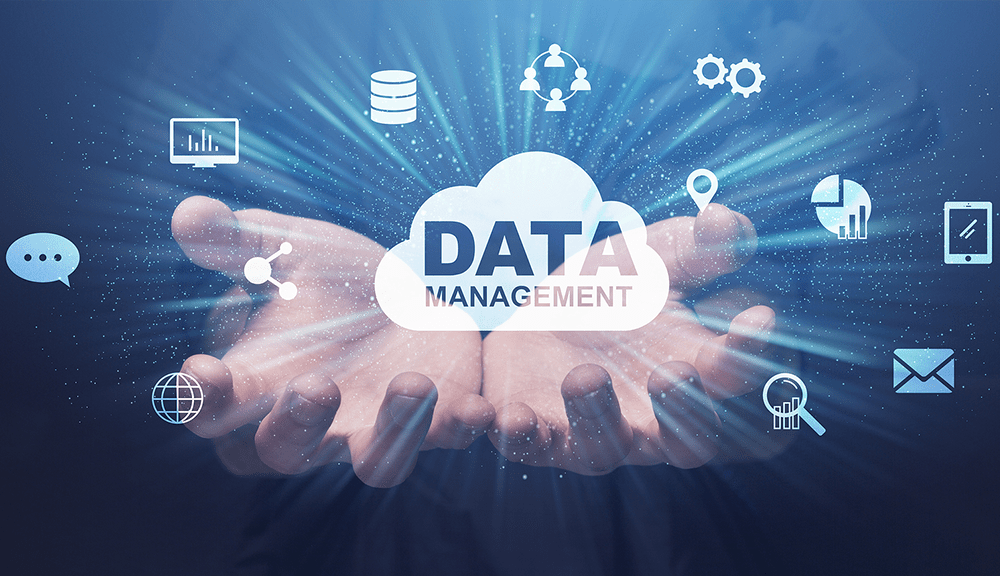Cybersecurity risks are a persistent and impending concern in the modern digital era. Furthermore, even with AI-ML improved cybersecurity solutions, it can occasionally be challenging for organizations to safeguard their precious digital data due to the ongoing evolution of hacker and other harmful actor techniques.
Data management plays a pivotal role in modern business landscapes, encompassing the intricate processes of collecting, storing, organizing, and utilizing data for strategic decision-making. Within this sphere, the integration of Artificial Intelligence (AI) and Machine Learning (ML) stands as a transformative force.
AI simulates human intelligence, while ML enables systems to learn and improve from experience without explicit programming in data management.
Data management procedures are being revolutionized by AI and ML, which helps businesses increase data accuracy, expedite processes, and glean insightful information from large, complicated datasets. In a world where data is becoming more and more important, this integration is essential for maintaining a competitive advantage.
1# Evolution of Data Management with AI/ML
The evolution of data management witnessed a profound transformation with the integration of Artificial Intelligence (AI) and Machine Learning (ML). Historically, conventional data involved manual handling and storage, but the advent of AI and ML revolutionized these practices.
Over time, key milestones marked the convergence of AI/ML into data systems. Breakthroughs like the development of advanced algorithms capable of processing large datasets expedited data analysis. Additionally, innovations in AI-driven predictive analytics and ML-based pattern recognition brought unprecedented efficiency to data processing.
The infusion of AI/ML into data management systems enabled the automation of once-manual tasks, enhancing accuracy and speed in data processing. These advancements reshaped traditional paradigms, allowing organizations to navigate the complexities of vast data volumes with greater ease and precision. As AI/ML technologies continued to evolve, they became pivotal in redefining data management strategies, setting the stage for a more agile, predictive, and insightful approach to handling information.
2# Applications of AI/ML in Data Management
In the realm of data management, the integration of Artificial Intelligence (AI) and Machine Learning (ML) has brought forth multifaceted applications, reshaping traditional practices.
AI/ML plays a pivotal role in data cleansing and preprocessing, streamlining data preparation by automating error identification and rectification. This transformative capability significantly expedites the cleaning process, ensuring data integrity. Numerous AI-driven tools and techniques, such as automated anomaly detection and pattern recognition algorithms, exemplify this trend.
Furthermore, AI/ML’s prowess in predictive analytics fuels informed decision-making by extrapolating trends from vast datasets. Organizations leverage these insights to foresee market trends, anticipate customer behavior, and optimize strategies for better outcomes. Real-world instances demonstrate how predictive insights generated by AI/ML algorithms have driven substantial business growth.
3# Challenges and Considerations
The infusion of Artificial Intelligence (AI) and Machine Learning (ML) brings a spectrum of innovations and challenges. Ethical considerations and data privacy emerge as paramount concerns in deploying AI/ML within data frameworks. Addressing these issues involves navigating complex ethical landscapes and ensuring compliance with stringent data regulations.
AI/ML adoption in data management presents challenges due to deployment complexities and specialized skill needs. Strategies include comprehensive training programs and fostering a technologically-adopting culture.
This part explores AI/ML ethics in data management, highlighting regulations to protect data privacy and address ethical concerns. Additionally, it examines the hurdles in deploying these technologies, offering insights into overcoming skill gaps and implementation obstacles to effectively harness the potential of AI/ML in data management practices.
4# Future Trends and Innovations
Artificial Intelligence (AI) and Machine Learning (ML) continually drives transformative shifts. Emerging trends forecast an evolution in AI/ML applications that promise to revolutionize data management practices. These innovations encompass a broad spectrum, from augmented data cleansing and preprocessing capabilities to more sophisticated predictive analytics and decision-making models.
The future trajectory suggests a deeper integration of AI/ML into data frameworks. This evolution anticipates unprecedented efficiency in automating routine tasks, optimizing workflows, and ensuring data integrity through advanced algorithms.
AI/ML is expected to significantly impact data management strategies across industries, causing a paradigm shift in data handling, analysis, and decision-making for businesses.
Conclusion
The integration of Artificial Intelligence (AI) and Machine Learning (ML) has fundamentally reshaped data management paradigms. This transformative synergy holds immense promise for the future, revolutionizing how businesses handle, analyze, and leverage data.
The recap underscores the pivotal role played by AI/ML in automating processes, enhancing predictive analytics, and optimizing workflows within data frameworks.
Looking ahead, embracing these technologies strategically is recommended, heralding a future where businesses harness AI/ML to drive informed decisions, maximize efficiency, and unlock unprecedented insights from their data repositories.
If you want the best data management services for your business, reach out to us. Contact us now.






